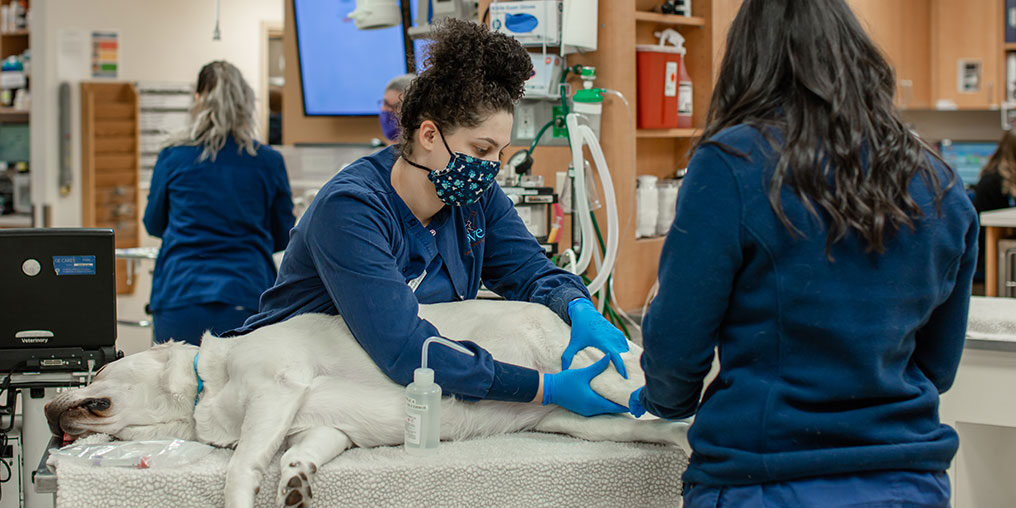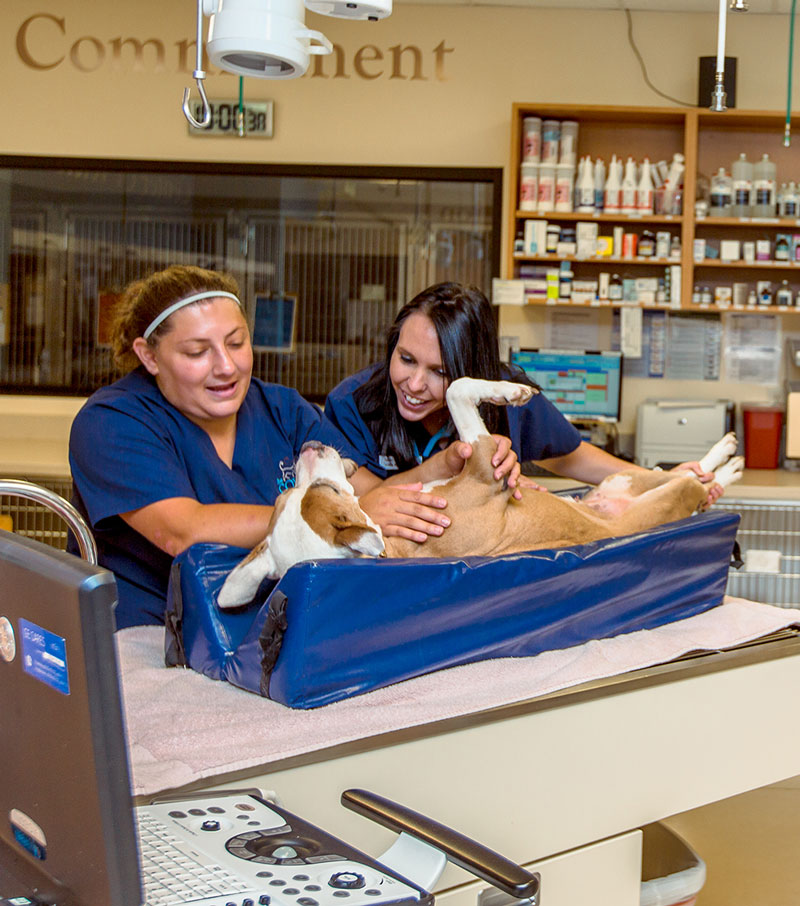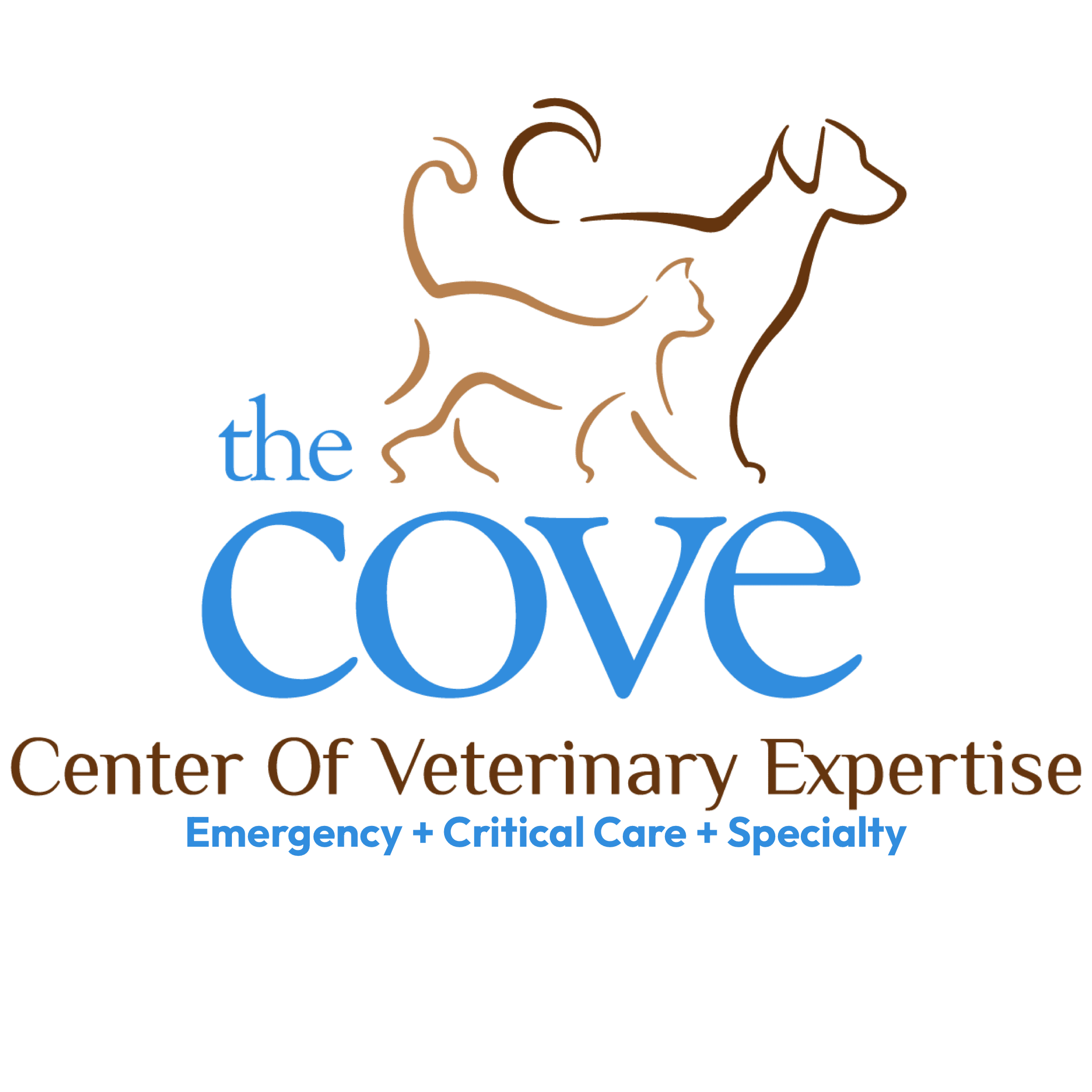
Frequently Asked Questions
Please review our FAQ if you have any questions about your pet or our hospital. If you still have questions that are not covered here, give us a call at (757) 935-9111.
Emergency & Specialty Care Questions
Frequently asked questions relating to emergency and specialty care.
Please click here to learn more about what type of illness or injury may be an emergency. If you are unsure, call us right away at (757) 935-9111.
If possible, try to identify the substance your pet ingested, and bring it with you for your veterinarian to evaluate. If your pet has vomited, please gather a sample of that as well. Call your primary care veterinarian or the ASPCA at (888) 426-4435 immediately for guidance. Do NOT try to induce vomiting. You may always call us or come directly to our ER if you prefer.
For more information about common poisonous household items, see our blog about pet poison prevention.
An unexpected illness or injury can happen any time for your pet. If they need emergency care and your primary care vet is closed, you can count on us to help you. On the other hand, if your primary vet’s office is open, we encourage you to call them first to discuss your situation, and follow their instructions about going in to see them or heading straight to an emergency hospital. If you are still unsure about what to do or do not have a veterinarian currently, don’t delay—call us or stop by immediately.
No, you do not need to have an appointment or referral to receive emergency care at The COVE. If possible, we urge you to call us first at (757) 935-9111, so we can be prepared for your arrival and assist you if you need help bringing your pet inside.
Yes, you will need your primary care vet to submit a referral for your pet for our specialty services (cardiology, surgery, or dentistry).
Just as in human medicine, veterinarians can choose to specialize. This requires extensive training that includes four years of veterinary school, plus a one-year internship and a three-year residency in the chosen specialty. The veterinarian must then publish original research and pass an exam certifying their expertise. After completing these requirements, the veterinarian is granted Diplomate status and is considered “board-certified” or a specialist, signifying his or her expertise and credentials in their chosen specialty. A primary care or family veterinarian has earned a veterinary degree after four years of schooling and focuses on general preventive care and pet wellness. They refer to and partner with the appropriate specialists when advanced care is needed.
Yes, we will update your family (primary care) veterinarian by sharing your pet’s medical records with them regularly. This coordination helps to ensure continuity of care for your pet. Your primary care veterinarian may also call to speak with one of our doctors to discuss your pet’s diagnosis and treatment.
Payment
Information
Frequently asked questions about payment.
Each patient’s situation is assessed uniquely. You will always be told the cost of consultations and/or treatments for your pet before they are provided. Once care is completed, any balance due is payable upon discharge.
If your pet is hospitalized at The COVE, a deposit is required for treatment. We will provide medical and financial updates twice a day while your pet is with us to avoid any surprises.
Furthermore, we will always provide our best estimate for care. However, depending on how your pet responds to treatment, and/or if any complications arise, we unfortunately cannot guarantee the original estimated cost.
The emergency and critical care department is staffed with highly trained doctors and nurses. Maintaining the staff, equipment, and facilities necessary to provide emergency and critical care services around the clock costs significantly more than running a routine veterinary practice.
We understand that emergency care is an unforeseen expense and will do everything we can to work within your budget to provide the best care for your pet. A thorough review of medical recommendations and their associated costs will always be shared with you to avoid surprises. Please feel free to discuss your financial concerns with our team!
Yes, we accept all pet insurance plans including any direct pay plans. We are happy to submit claims on behalf of clients who have pet health insurance, or we can provide information for clients who need to submit claims for reimbursement.
Yes, we offer financing through CareCredit, Scratchpay and AllPet, which are both third-party payment plans for qualified applicants.

Post-Op Care & Other Questions
Additional questions about conditions and treatments.
Many pets may not have a bowel movement for several days after surgery or an extended hospital stay. There are various reasons for bowel irregularities, including:
- Fasting prior to surgery
- Having a decreased appetite after surgery or during the hospital stay
- Reduced appetite after returning home for the first few days
- Diets of highly digestible food that produce little stool, and/or pain medications that contain narcotics which slow the digestive system
If your pet does not have a bowel movement by the 4th day after their surgery or discharge or is straining to defecate sooner, call us at The COVE or contact your primary care veterinarian.
Dogs and cats feel pain similar to how humans do, though they differ in how they express their discomfort.
Cats typically show pain or discomfort by vocalizing, refusing food, open-mouthed breathing, drooling/salivating, and most commonly, hiding. Another indication of pain in cats is crying when being held. This often happens if their abdomen feels tense or distended. Some cats experiencing pain may exhibit out-of-character behaviors, like biting or hissing.
Dogs display their discomfort in a more obvious way. You may notice them panting, pacing, not being able to get comfortable when lying down, drooling, refusing food, and whimpering. Dogs may also show uncharacteristic behaviors like growling or biting.
Other common symptoms of pain include:
- Limping
- Continuous licking of a specific area
- Lethargy
- Crying/whimpering
- Inability to get comfortable
- Panting/rapid breathing
- Going to the bathroom inside the house or outside of the litterbox
Some medications prescribed to pets are available at human pharmacies and may be called in. However, there are some prescriptions restricted for veterinary use only, and they are not as readily available at local pharmacies.
While online pharmacies might offer medications at a more reduced rate, pet owners must exercise caution. It can be difficult to distinguish between a reputable website and an illegal online pharmacy.
Some risks of purchasing your pet’s medications online include:
- Counterfeit medications
- Outdated or mislabeled medications
- Medications that are incorrectly formulated or improperly stored
- Receiving medication that contains the wrong ingredients, the incorrect amount of active ingredients, and/or contaminants
Ask your veterinarian to recommend a reputable online pharmacy.
Please follow your discharge instructions closely for feeding recommendations. Once your pet’s symptoms have completely resolved or your veterinarian directs you, you can switch back to their normal diet. However, we recommend that any change in diet should be gradual, over 3-4 days to minimize your pet’s risk of dietary indiscretion.
Signs of labor may include one or more of the following:
- Restlessness
- Panting and pacing
- Decreased body temperature
As labor progresses and contractions begin, your pet may lie on her side and you might see her abdominal muscles contracting. Purposeful labor should last no longer than 30 minutes for dogs and 60 minutes for cats. If the labor continues for over an hour without birth, contact your primary care veterinarian or The COVE immediately.
